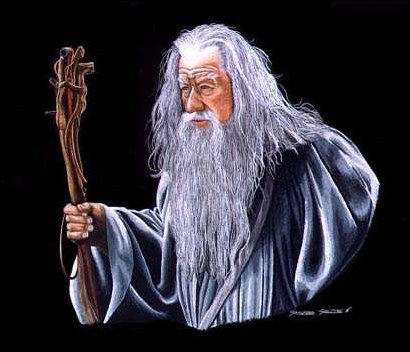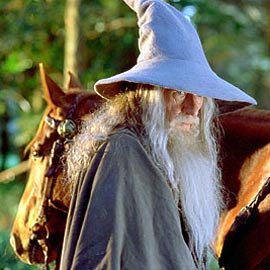A few years ago, I had the opportunity to listen to Arun Gandhi, the grandson of Mohandas Gandhi, speak. He told the following story (recounted below from my notes of the lecture):
There was a child who lived near my grandfather who ate too many sweets. His body began to develop a rash as a reaction to his eating sweets. The child's doctor said he must give up the sweets. The parents told the child he could have no more sweets, but they still had them in the home and others ate sweets at family dinners and the like. The child would sneak sweets at every opportunity. The parents would punish the child, but they were getting nowhere. The brought the child to grandfather, and asked him to talk to the child. Grandfather thought for a moment, and then told the parents to bring the child back in fifteen days. The parents were perplexed, and while their confidence in the holy man may have been shaken somewhat, they would not challenge him. So, they came back in 15 days. Gandhi took the child aside and spoke to him very briefly, perhaps only a little more than a minute. The child went home with his parents and never touched sweets, and his health improved. The parents were amazed. They later went back to Gandhi and asked him how he performed the miracle. He told the family, "I had to make you wait 15 days so that I myself could give up sweets." When grandfather spoke with the child, he told the child that he would not eat sweets until the doctor told the child that sweets were acceptable again. This convinced the child to give up sweets because someone as important as Gandhi was willing to do so.
Gandhi taught that "we must be the change we wish to be in the world." Thich Nhat Hanh said, similarly, "Peace in Oneself, Peace in the World."
In roaming about the web and looking at websites that discuss the war in Iraq, I see too many sites the say they are seeking peace, while they are using the language of violence. I am reminded of anti-war activists of the Vietnam War era who said they wanted peace while they threw rocks and/or verbally abused the police and other government officials.
Did the Vietnam War protesters who acted in such a fashion help to bring the war to an end? [Note: not all protesters acted in such a manner.] Maybe. Did they promote peace, creating conditions where war was less likely in the future? Almost certainly not. That is part of the reason that in the 2004 election, 30 years after the end of the war in Vietnam, there was so much bitterness in the nation that the conduct of the two candidates all those years earlier during the war could become a political issue.
Opponents of today's war, whether on the Web or elsewhere, need to drop the language of violence and adopt the language of peace. This language of peace needs to start at the heart and work its way out from there. Our peaceful approach should be apparent to those around us as they watch us live. To use another quote from Thich Nhat Hanh- "To have peace, we must be peace."
GP
Note: Another example of religious consilience: Gandhi is a Hindu. Thich Nhat Hanh, a Buddhist.
Tuesday, May 30, 2006
Subscribe to:
Post Comments (Atom)


2 comments:
Hmm I love the idea behind this website, very unique.
»
Great site loved it alot, will come back and visit again.
»
Post a Comment